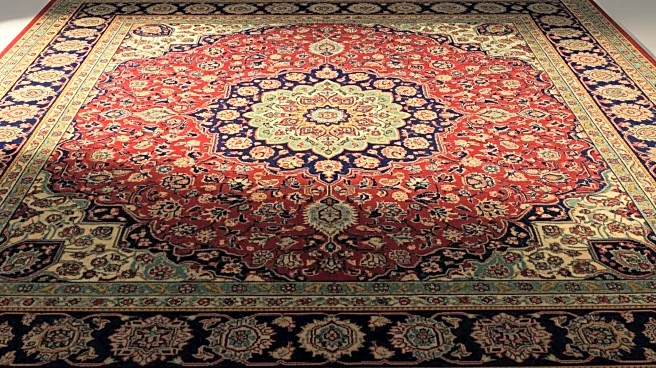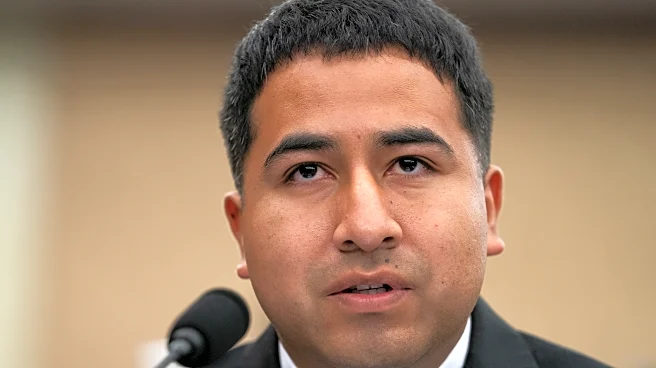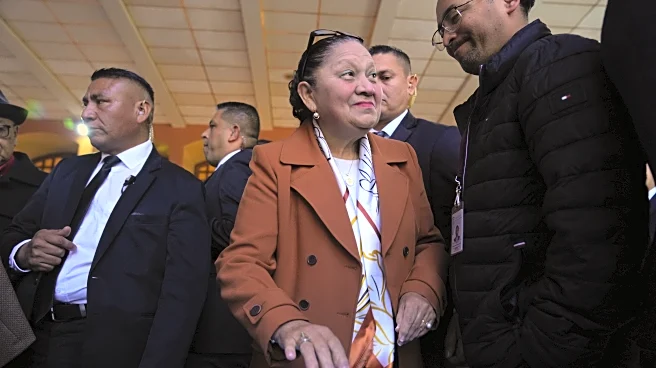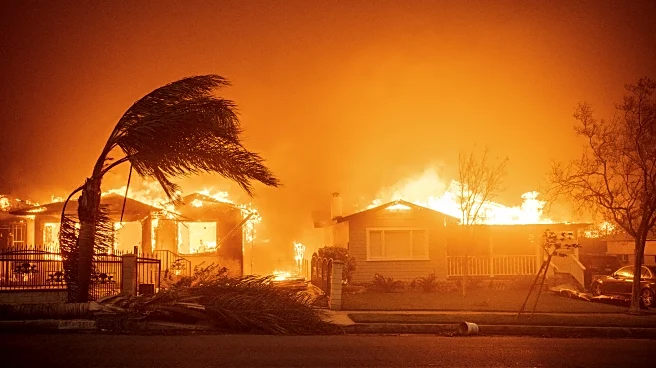What's Happening?
Iranian President Ebrahim Raisi died in a helicopter crash on May 19, 2024, along with several other officials. The crash occurred in dense fog in East Azerbaijan province. Raisi, a hardline cleric, was not a popular figure and faced criticism for his
role in the 1988 mass executions. His presidency was marked by economic challenges and strained foreign relations. Supreme Leader Ayatollah Ali Khamenei has appointed Raisi's first vice president, Mohammad Mokhber, as interim president. Iran is now preparing for presidential elections scheduled for June 28, 2024.
Why It's Important?
Raisi's death adds uncertainty to Iran's political landscape, especially with the upcoming elections and the potential succession of Supreme Leader Khamenei. Raisi's presidency was characterized by a hardline approach to domestic and foreign policy, impacting Iran's relations with major powers and regional stability. The transition of power may lead to shifts in Iran's strategic priorities, particularly in relation to its nuclear program and alliances with countries like China and Russia. The international community will be closely monitoring Iran's political developments.
What's Next?
Iran is set to hold presidential elections on June 28, 2024, which will determine the future direction of the country's domestic and foreign policies. The new president will need to address ongoing economic challenges and navigate the complex political environment shaped by Raisi's legacy. The succession of Supreme Leader Khamenei remains a critical issue, with potential implications for Iran's governance and foreign policy. The international community will be closely watching Iran's political developments, particularly in relation to its nuclear program and regional influence.
Beyond the Headlines
Raisi's presidency highlighted the deep-seated issues within Iran's political system, including the lack of political diversity and the dominance of hardline factions. His death may prompt discussions on the need for political reform and greater inclusivity in Iran's electoral process. The international community will be closely monitoring Iran's political developments, particularly in relation to its nuclear program and regional influence. The upcoming elections and succession of the Supreme Leader could lead to significant changes in Iran's domestic and foreign policies.













![Cortisol vs. Melatonin: The Biological War Happening Inside Every Night-Shift Worker]](https://glance-mob.glance-cdn.com/public/cardpress/binge-magazine-card-generation/spaces/US/en/discover-daily/images/ppid_7byehtbd-image-177082393426031154.webp)



